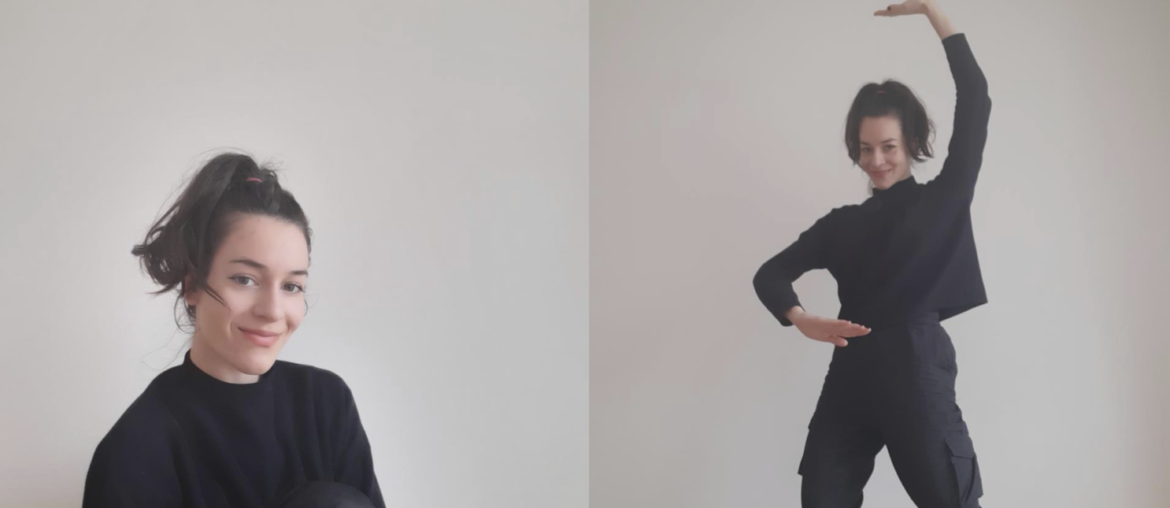Johanne is a Danish psychologist trained in behavioral methods and the co-founder of It's Complicated. She completed her education as a psychologist at the University of Copenhagen in 2013, with a master's degree and experience within the fields of narrative therapy, cognitive-behavioral therapy and acceptance and commitment therapy (ACT).
Last Updated on December 30, 2023 by It’s Complicated
In current times, effort has to be made so that all content and conversations aren’t hyperfocused on the Coronavirus. That’s why we’re extra happy to present you with a bit of normalcy in the form of the next interview in the “Meet the counsellor” series. This time with Dance and Movement therapist Sophie Merrison.
How did you decide to become a dance therapist? Can you describe the trajectory to becoming a dance movement therapist?
Sophie Merrison: I have been dancing since I was a little girl and never stopped. I danced in any place and in any situation. Movement has always played an important role in my life. It has always helped me process and understand, given me hope and a sense of aliveness and freedom.
After a while I started turning movement into performances (I am also a dancer and performance artist). I discovered that my favourite type of performances included the audience with the aim of creating a sense of communal transformation. I wanted the audience to come out feeling different, with a sense of openness and calmness. That’s when I discovered my passion for using dance for helping others and I decided to study a masters in dance therapy to discover how exactly it can do so, hoping to add more in-depth scientific reasoning to my creative discoveries. I’ve also always been interested in the relationship between the body and the mind and have attended various spiritual and somatic retreats from a young age in pursuit of a closer understanding of their connection.
What is your counselling philosophy?
Sophie Merrison: My counselling philosophy is based on my trajectory. I follow a philosophy of open exploration, curiosity and creativity along with a basic understanding of neurobiological research about how our brain is wired and is impacted by imbalances such as trauma and depression. I also find having a safe, non-judgemental space to express oneself incredibly important and see it as a central element in any healing process. I also believe that a therapist should be constantly active in their own process of self-development and examining new techniques and modes of understanding the human condition.
What is the most rewarding thing about your work?
Sophie Merrison: I find it beautiful seeing people’s vulnerabilites and being able to share that with them. I also love to watch the moments in which people experience something new or do or think about something differently. It’s a sense of excitement and possibility.
What is the most difficult and complicated?
Sophie Merrison: Sometimes it can be hard to find the right words in certain situations. This is when I will often refer to listening to the body and communicating that way instead. The body is an incredibly valuable tool, it never lies, and through movement we are often able to access parts of the brain that cannot be reached verbally.
What do you like doing in your free time?
Sophie Merrison: I love to be in nature, especially in the forest. I also love to go to dance classes and do yoga. I also love to try new things and experience things I’ve never done before.
What could I expect our first session together to be like? What happens in a typical session?
Sophie Merrison: In our first session we get to know each other. I listen to your reasons for wanting to explore dance therapy and then briefly explain what to expect in my sessions. Then we would also try some body and movement exercises to give you a taste of what to expect. The sessions always begin with a brief discussion of current issues and a follow-up on the last session followed by further exploration of the topics through the body. They are always a mixture of specific concepts and techniques and improvisation suited to the person’s particular interests and needs on that day.
How do you help ensure I’m making progress in therapy?
Sophie Merrison: I like to give tasks to do at home until our next session to help the session resonate and grow. I also like to ask the person to regularly observe their own process by asking them specific questions and feeling into their body.
How will I know if it’s time to end therapy with you or reduce session frequency?
Sophie Merrison: This is completely up to you, although I am happy to give rough time frames if asked.
I offer packages of 5 and 10 and create the last session as a summary session and as a moment to reflect on whether another package would be useful.
Is it possible to do dance movement therapy online? How would this work?
Sophie Merrison: Yes, this is also possible via Skype or Zoom as long as you have a webcam. I love to offer online sessions as this way we are not restricted by geography and I am able to work with people I would not be able to otherwise.
During this Corona situation I am offering free online movement sessions, although I am still charging sliding-scale prices for individual sessions. I also do online guided meditations.
What advice would you share with therapy seekers to simplify their search?
I think It’s Complicated is a great platform. I think finding a therapist you feel comfortable with and get on with on a personal level is very important. At the same time I am aware that the waitlists for therapists who are covered by health insurance is very long and often means you have less choice, which I find very difficult. Finding therapists that offer flexible pricing might be of use in this instance. It is also worth looking into whether your health insurance covers dance therapy. Securvita for example offers partial coverage in certain cases. I don’t think therapy should be a luxury and I know that the dance therapy network and associations are working hard to allow complete insurance coverage in the future.
Advantages of Discovering Your Therapist via It’s Complicated
- No Setup Costs: Creating an account and reaching out to therapists is entirely cost-free.
- Transparent Pricing: You’ll only pay the session fee, with no concealed booking fees.
- Precise Search: Utilise our robust search tool to pinpoint therapists based on your specific preferences.
- Thorough Listings: Easily explore therapists categorised by their specialty, approach, location, and language.
It’s Complicated is a therapy platform that not only helps clients find their perfect therapist but also supports therapists in their craft of helping others. Featuring over 2,000 mental health professionals from 80+ countries, counselling is available in almost 100 languages, both online and in person. A GDPR-compliant video solution, encrypted messaging, and easy invoicing guarantee a private and seamless counselling experience for therapists and clients alike. If you are in a serious crisis and need urgent help, please use one of these resources instead.






Comments are closed.